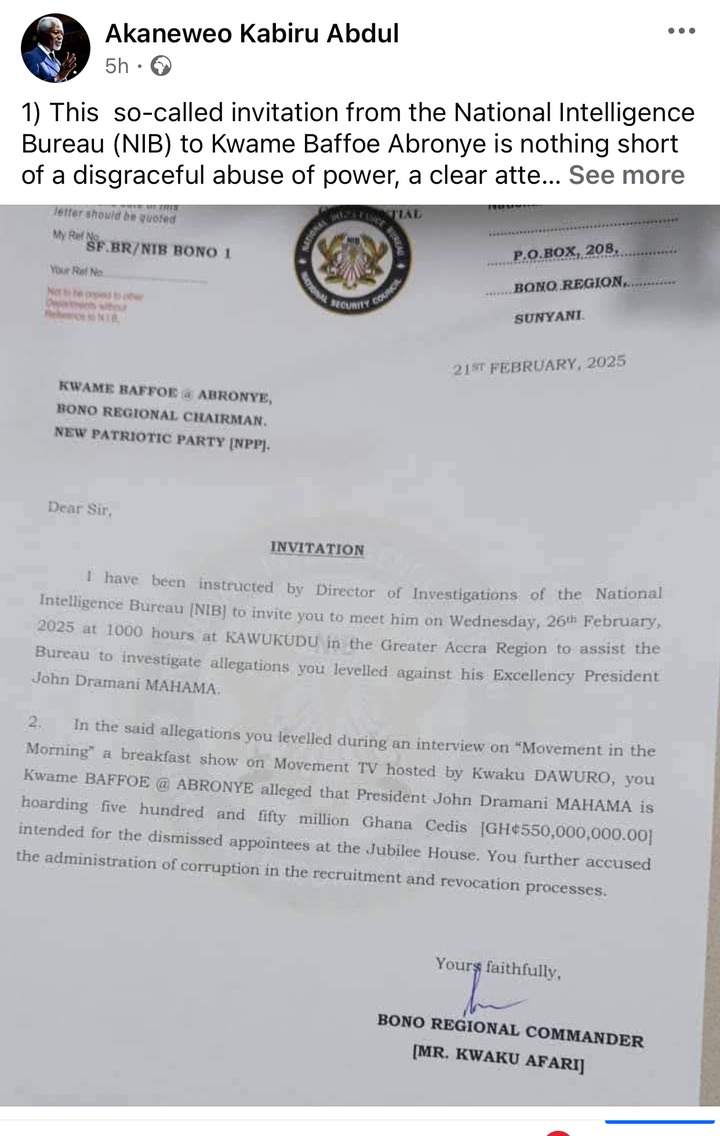
The National Intelligence Bureau’s (NIB) decision to summon Kwame Baffoe Abronye has sparked widespread debate, with many questioning whether Ghana is slipping into a culture of political intimidation and suppression of free speech. Prominent social commentator, Pan-Africanist and Civil Society Advocate Akaneweo Kabiru Abdul has strongly condemned the move, describing it as an abuse of power designed to silence critics rather than address genuine concerns.
At the center of this controversy is a straightforward question Abronye posed: What happened to the funds allocated for the salaries of newly recruited workers whose appointments were suddenly revoked? According to Kabiru Abdul, this is a legitimate concern that any transparent government should be able to answer. “When the government gives financial clearance for recruitment, funds are set aside to pay those employees. If their jobs are canceled, what happens to the money? That’s all Baffoe Abronye asked,” Abdul stated.
But instead of providing a clear response, the government has allegedly turned to intimidation tactics, using the NIB to summon Abronye for questioning. Kabiru Abdul argues that this move sends a chilling message to all Ghanaians that simply asking the wrong questions could put them in trouble.
Kabiru Abdul’s concerns go beyond Kwame Baffoe Abronye’s case. He pointed out that while the NIB is actively pursuing political figures, it has been noticeably silent on more pressing national security issues, including:
– The military raid on former Finance Minister Ken Ofori-Atta’s home, which many believe was an abuse of state power.
– The Bawku chieftaincy conflict, which has led to civilian deaths and military interventions.
– The rise in armed robberies targeting mobile money vendors, which remains unaddressed.

For Kabiru Abdul, this situation raises a worrying question: Are we heading back to a time when speaking out against the government was dangerous? He urged Ghanaians to stand firm against oppression, dictatorship, and political persecution.
Source
